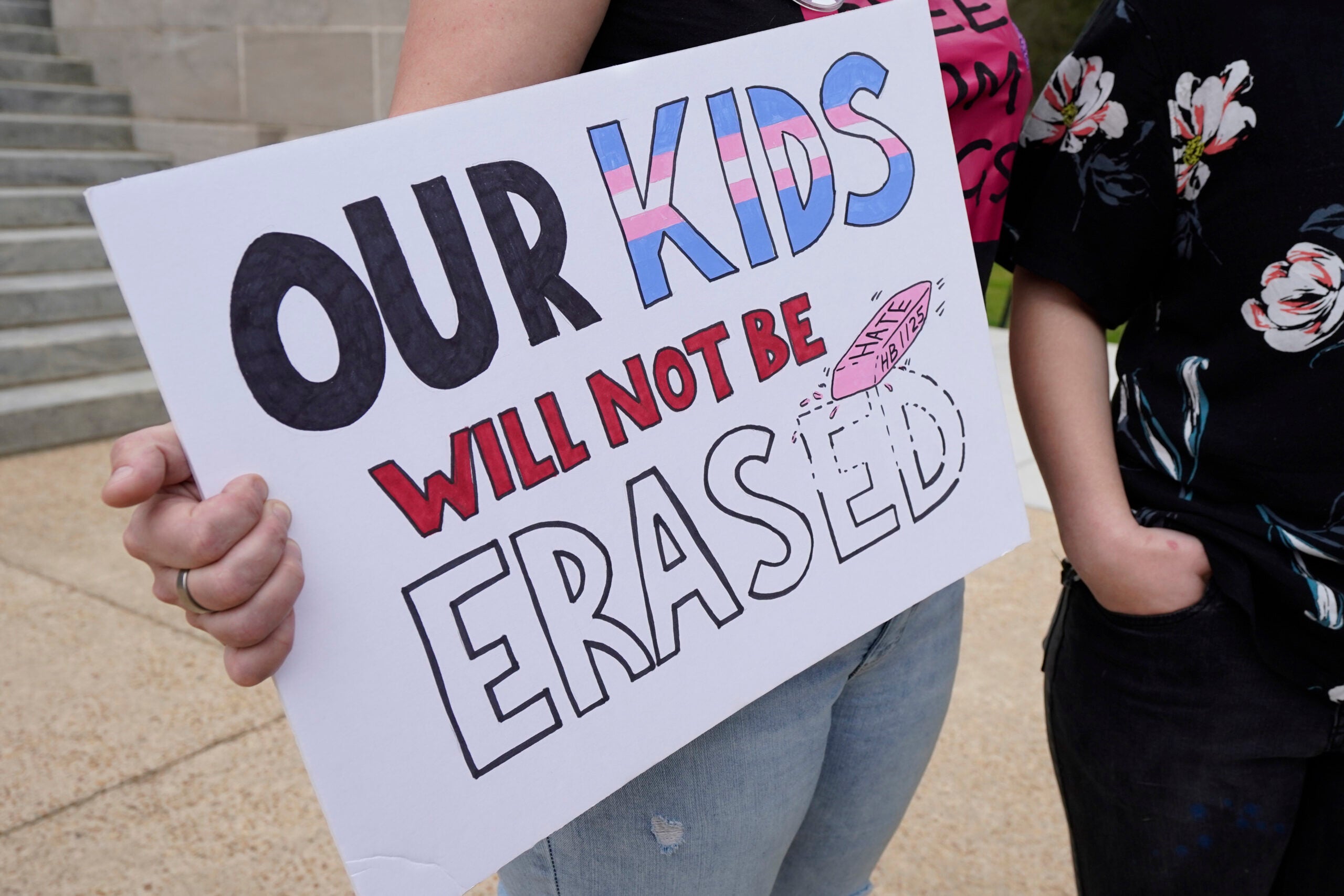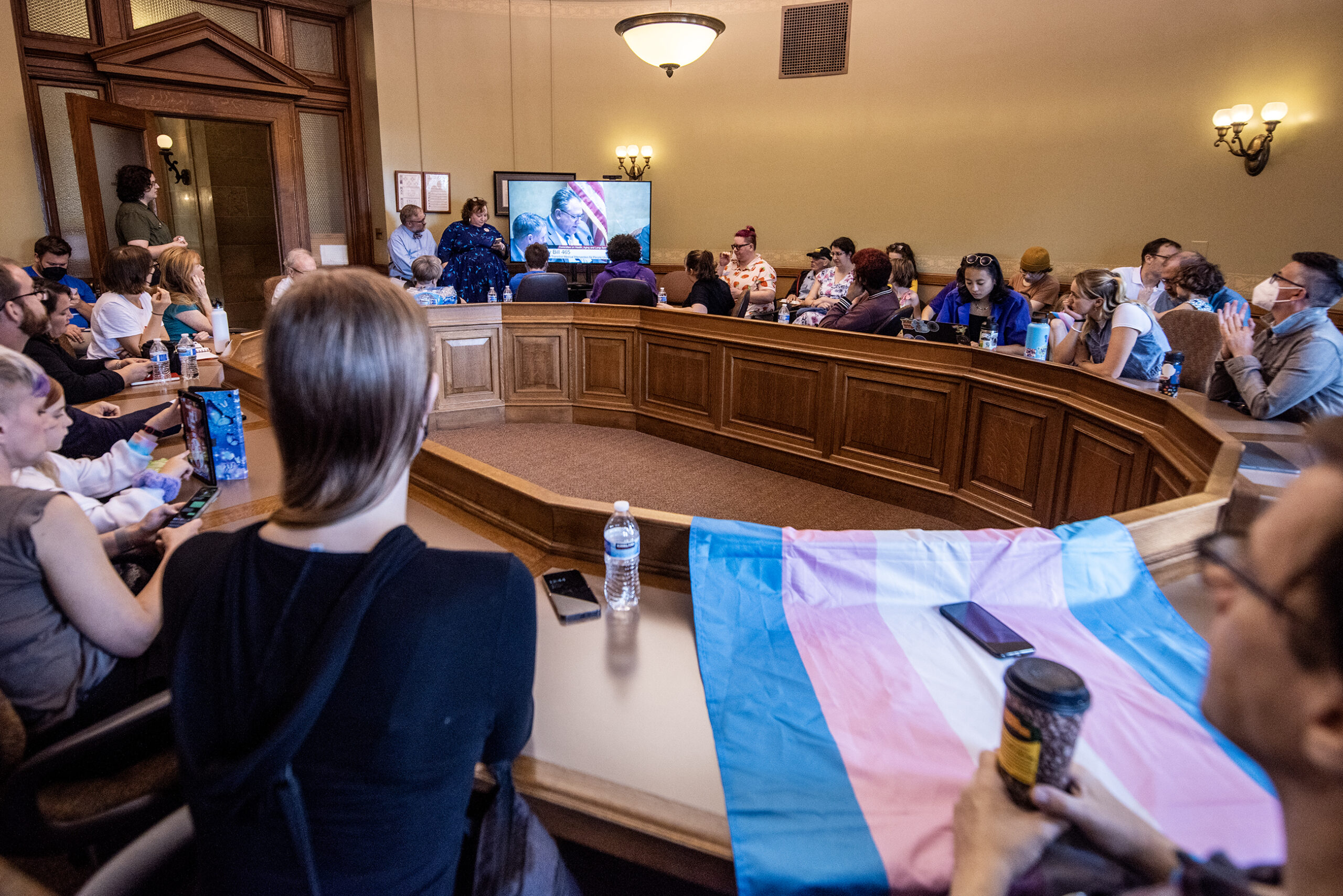A new program from the University of Wisconsin-Madison offers support to adults who have some college credit but have taken a lengthy break from school. We learn more about the program. We also hear about the NASA lander launched to mars. We also talk about the risk of burnout in youth sports and how to keep athletes happy and healthy.
Featured in this Show
-
For Young Athletes, Specializing In One Sport Can Be Damaging, Physician Says
Consequences from young athletes specializing in one sport at an early age can include burnout, injury and loss of interest, but these can be prevented by exposing children to more of a mixed bag of activities, according to a New York-based orthopedic surgeon and sports medicine expert.
Dr. Charlie Popkin, an assistant professor of orthopedic surgery at Columbia University Medical Center and an assistant attending physician at NewYork-Presbyterian Hospital, said research shows that overexposing children to one sport doesn’t keep them on the field longer and in fact might be doing them more harm than good.
“We’ve started to gain some research that is clearly starting to show that there is an association with overuse-type injuries,” he said.
For example, a study published in the American Journal of Sports Medicine revealed that youth who played one sport for eight months were three times more likely to suffer an overuse injury in the hip or knee.
Those injuries might include Osgood-Schlatter disease, which is a knee injury caused by overuse or trauma to the upper shinbone area, stress fractures and tendon inflammation.
“We’re also seeing a big spike in ACL surgery in the knee and Tommy John surgery in the elbow for those baseball players that are unfortunately playing year-round,” Popkin said.
Popkin said it’s important for coaches and parents to foster enthusiasm for the sport as a way to help youth stay engaged for the long haul. It’s healthier for young players to make that decision rather than hear it as a directive from a parent.
Such a pattern of being told what to do can lead to emotional burnout.
“I think there is a myth out there that you need to specialize super early,” he said. “And you know, our research and from others is showing that that’s just not the case, particularly for team sports. If you’re starting that early, there’s a really high burnout risk that is very real.”
An article published in UConn Health advises children spend no more hours per week playing sports than their age. That same article also states that specialization is beneficial at the high school level and not necessarily before, a sentiment echoed by Popkin.
“We really encourage playing multiple sports until essentially high school, somewhere around sophomore, junior year,” Popkin said.
He later noted that of this year’s NFL draft, 29 of 32 first-round picks were two-sport athletes and half were three-sport athletes in high school.
Some organizations such as USA Baseball, which governs amateur baseball in the U.S., are recognizing the effect of youth burnout and have recommended that youth play baseball no more than nine months of the year, and such an acknowledgement has earned praise from Popkin.
Other organizations have begun efforts to educate parents, coaches and athletes about the effects of overplay and how to prevent it.
The website StopSportsInjuries.org, a product of the American Orthopaedic Society for Sports Medicine, lists potential injuries to watch for in a variety of sports and ways to prevent them. For example, baseball players should rotate positions so they’re not constantly pitching, avoid pitching on multiple teams at the same time and never use a radar gun.
The website also advises a certain number of pitches per game for age groups.
“Kids bodies and brains are meant to grow to a variety of activities,” Popkin said. “And when you specialize in that early, they’re losing that ability to adapt and be adaptable.”
-
UW-Madison's 'Badger Ready' Program Helps Returning Non-Traditional Students
Adults who earn college degrees earn more and they tend to be healthier, happier and more goal-oriented.
But according to the U.S. Census Bureau, nearly half of Americans have completed some college but have no degree. Without that diploma, their median income drops by $15,000.
A new program at the University of Wisconsin-Madison hopes to bridge that gap.
The Badger Ready Program will offer adults over age 25 and veterans of any age the chance to start where they left off and begin the path of finishing their degree.
Targeted toward adults who might not otherwise qualify for transfer admission, it operates with the understanding that adults could have any number of barriers preventing them from returning to school, according to program director Autumn Sanchez.
“Many people have competing priorities and responsibilities,” she said. “Whether that’s balancing work, part-time, full-time, whether that’s family commitments, community involvement commitments, other things that are pulling them away and directing their energies elsewhere.”
In addition, she said people who’ve been away from a college campus might not be familiar with new campus technology. They might be significantly older than traditional students.
The program takes all these things into account, providing additional social support for the cohort, including a fall orientation and a chance to connect with others in their same situation. It’s designed for students to take face-to-face courses on campus.
“Being a place where people can call, can email, can show up at my office and come in and talk about the challenges that they’re having, the successes that they’re having, and be able to problem solve as a team,” Sanchez said.
The application process looks at what things may have prevented someone from finishing school in the past and evaluates how to resolve those barriers.
Despite the cohort mindset, Badger Ready is individualized so individuals can pursue one of many courses of study at UW-Madison. That might look like continuing the degree they had originally started, and it may look like veering in another direction.
“The really cool thing about this is that we are able to help them figure out their next step, whatever direction that may be,” Sanchez said.
-
NASA Launches InSight Lander To Probe The Surface Of Mars
NASA has launched the InSight lander to Mars in an effort to investigate conditions underneath the planet’s surface. We talk with a science reporter about what the mission hopes to learn, how the lander will work, and when it’s scheduled to arrive on the red planet.
-
Badger Ready Program Helps Returning Adult Students
Many adults have a few college credits under their belts, but didn’t finish their degree. Whether it was for personal reasons or money problems, a new program through the UW system offers adults with some college credit a chance and support at completing their degree, years or decades later. We talk to a UW representative of the new program for more information.
-
Avoiding Burnout In Young Athletes
When young athletes specialize in a single sport, physical and emotional burnout becomes a real possibility. We talk with an orthopedic surgeon about how playing multiple sports and putting kids’ goals first makes for happier and healthier athletes.
Episode Credits
- Rob Ferrett Host
- Dean Knetter Producer
- Natalie Guyette Producer
- Dr. Charles Popkin Guest
- Autumn Sanchez Guest
- Elizabeth Howell Guest
Wisconsin Public Radio, © Copyright 2025, Board of Regents of the University of Wisconsin System and Wisconsin Educational Communications Board.


